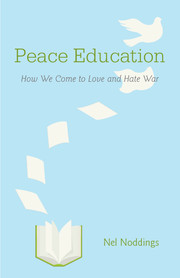4 - Patriotism
Published online by Cambridge University Press: 05 December 2011
Summary
Jared Diamond has pointed out that both ideology and religion can work toward cementing insider allegiance, an allegiance that can create a society that “becomes much more effective at conquering other societies or resisting attacks.” But, of course, the sort of allegiance we call patriotism often promotes hatred, enmity, and enormous sacrifices of life and property. In this chapter, we’ll examine the ambiguities of patriotism.
Starting with children
Saluting the flag and reciting the Pledge of Allegiance have long been accepted as the way to start the American school day. Many Americans believe that this custom has been there from the start and, therefore, hold it almost sacred. In fact, the Pledge was written in 1892 to celebrate the unity of a nation of immigrants and to commemorate the opening of the Chicago World’s Fair. It was written by Francis Bellamy, a Christian socialist, who “thought it would be a fine thing if on that day all the schoolchildren of America, in unison, offered something to their nation.” The now familiar phrase “under God” was added during the presidency of Dwight Eisenhower, and its purpose was mainly to distinguish the United States as a nation of believers in contrast to the Soviet Union and atheistic communism. The Pledge thus acted both to bring people together and to establish an important difference.
- Type
- Chapter
- Information
- Peace EducationHow We Come to Love and Hate War, pp. 51 - 67Publisher: Cambridge University PressPrint publication year: 2011



